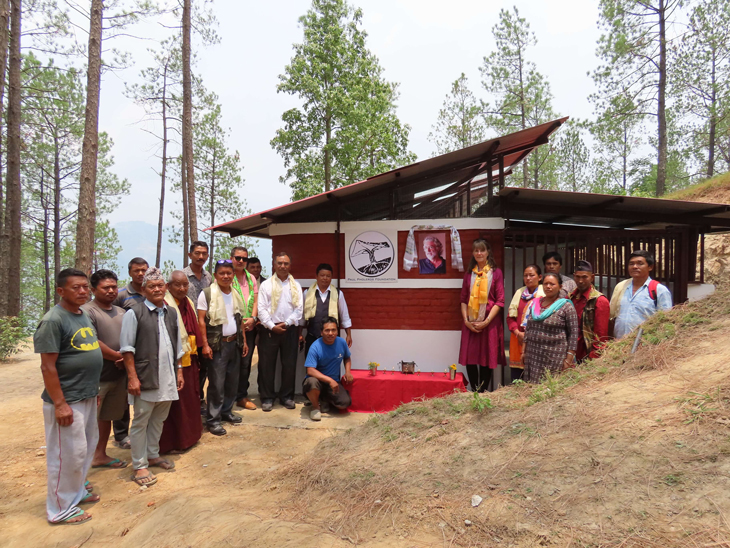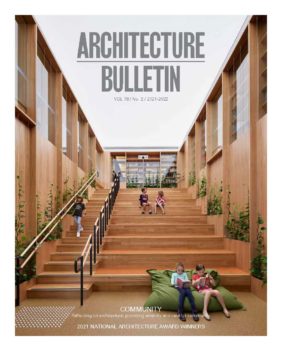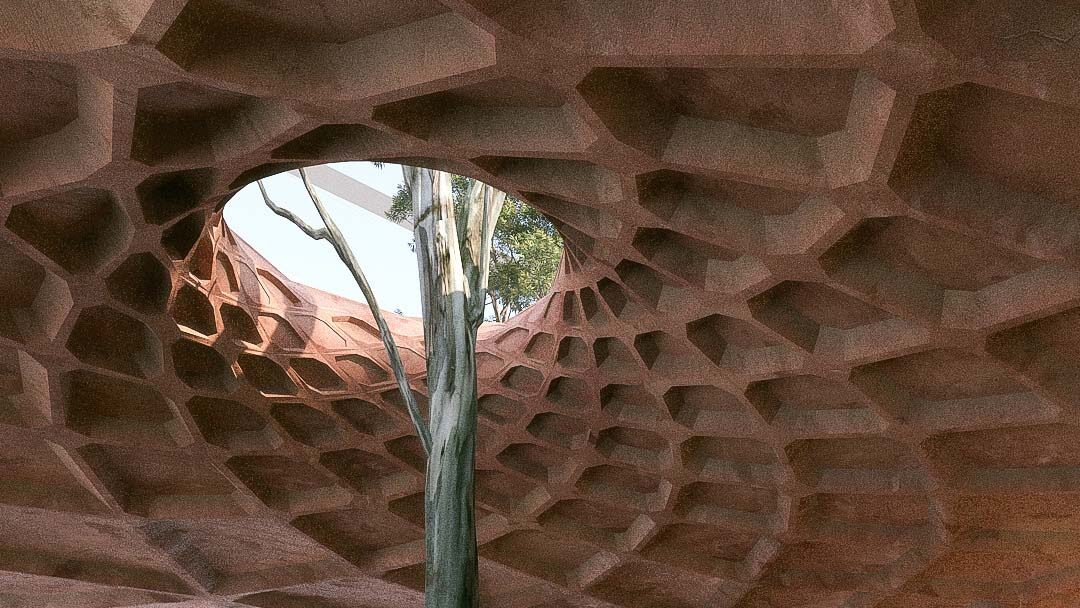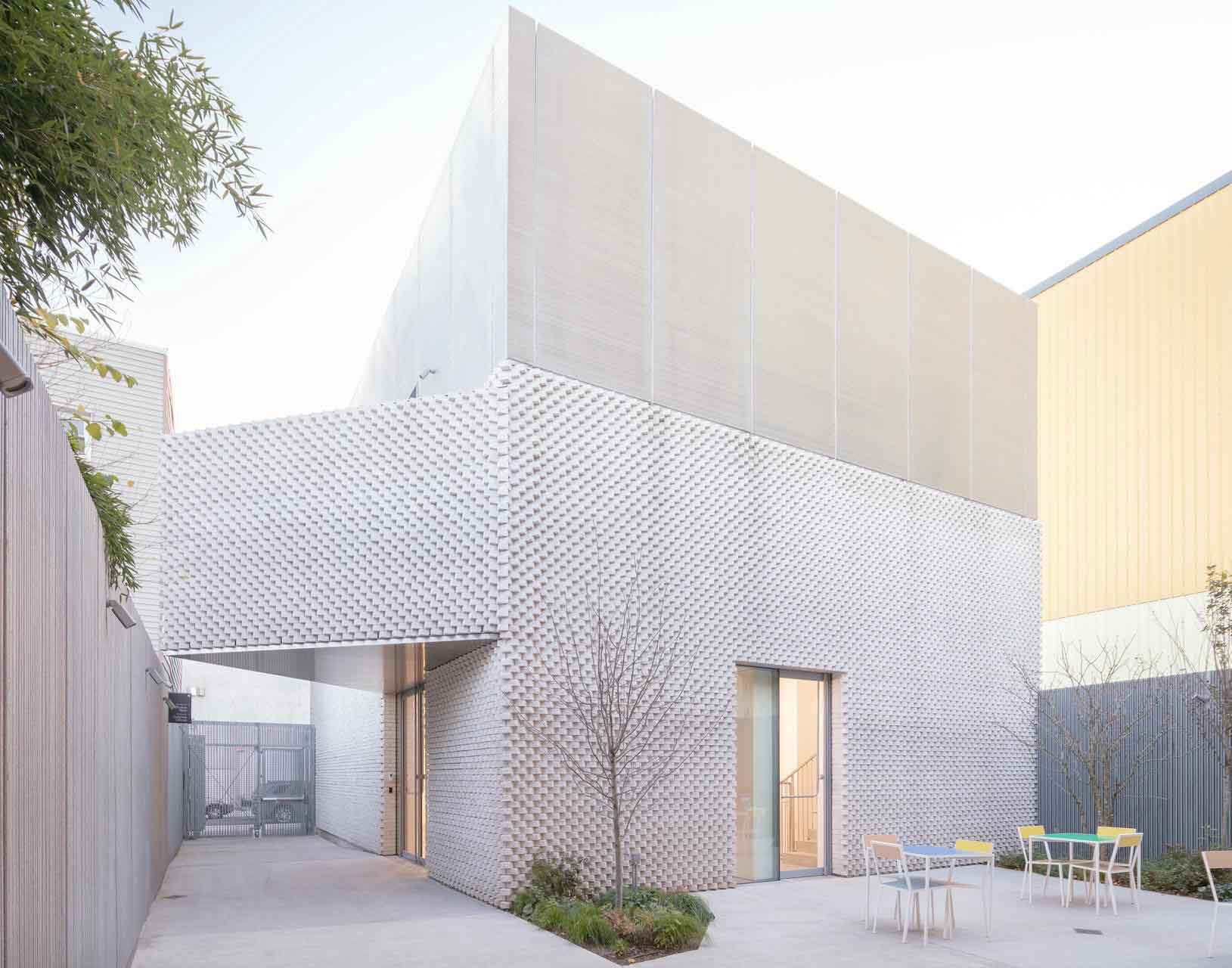While preparing the works of architect Paul Pholeros for archiving in the State Library of New South Wales, a lecture outline for architecture students in Papua New Guinea, circa 1995, was unearthed. The title is simply PNG Talk.
Paul presented three universal principles for the design process: consider the descending hierarchical order of place, people, and materials (or “stuff” in future iterations). Place: protect the site and greater room, respect its overall custodial role in preserving the environment. People: entrusted with clients’ money and dreams, the architect works with them to identify and develop needs; the best ideas come from the clients. Materials: reduce the quantity of materials and increase the quality of the built and natural living environments.
Students pre- and post-1995 explored these principles through games, which in the modern parlance would be problem-based learning. Paul always preferred games. The principles underscored his practise, from his pioneering cooperative approaches to improving environmental health and housing conditions in Indigenous and remote communities, to improving living conditions for private architecture clients.
In his reflective moments Paul singled out one project to be the most meaningful – the Tjilpiku Pampaku Ngura (home for elder men and women) on the Anangu Pitjantjatjara Yankunytjatjara Lands in northwest South Australia, opened in 2000. Paul had already been working on the Lands, spanning from the Stuart Highway in the east to the Western Australian. border in the west, for 15 years and had developed respectful relationships with Anangu and non-Anangu leaders.
Over more than two years the project’s development process was led by an Anangu team who consulted with the residents of the six major communities and several homelands on the Lands. Paul’s role was to listen and to share his thoughts on possibilities and practicalities.
This collaboration with the Anangu communities, Troppo Architects, aged care and health advisers, engineers and builders, resulted in a facility that respects traditional comforts – sheltered outdoor gathering and resting spaces, connections to earth – and the necessities for Elders’ health and residential care provision. The site, nestled in the edges of the Musgrave Ranges, has a powerful sense of ancient strength both physical and spiritual.
In the years to come Paul visited the Ngura regularly to maintain his connections with Anangu friends and to keep an eye on the landscape, buildings and usage patterns, learning always for future projects.
Paul died suddenly in early 2016, a tragic loss. One colleague mused, who do I look up to now? The community-based environmental health and housing works in Australia and overseas continue to be implemented by Paul’s teams, after a period of considerable adjustment.

The Paul Pholeros Foundation (PPF) was established in 2018 to honour Paul’s legacy of improving peoples’ lives and investment in skills development. The initial focus was on Nepal, to build on foundations laid by Paul in guiding village sanitation programs since 2007.
In 2019 the PPF provided a travelling Fellowship to a young plumbing and media team from Australia to work on the construction of a communal toilet block near the villagers’ holy gathering site, a Buddhist stupa in the nearby forest. Mentored by a senior plumber who is a founding director of the PPF, the team worked alongside their counterparts from the village. The villagers dedicated this facility to “Paul Sir” and proudly maintain it through employment of a caretaker.
The COVID pandemic forced the cancellation of the Nepal 2020 team – a plumber and an architect. Their project was to be the restoration of an outreach health centre’s toilet block that had been damaged by major earthquakes in 2015.
With the annual PPF Fellowship on hold, the organisation ran a national competition in Australia for the design of a portable hand-washing unit. Messages stressing the importance of hand hygiene have been strong and clear since the onset of the Coronavirus pandemic. Many countries including Nepal have developed hand-washing units to address the lack of local sanitation facilities; however, there is great need for a durable and portable hand-washing unit for use in locations with little or no access to a clean reticulated water supply.
The competition was won by a Bachelor of Design architecture graduate who is working with the PPF’s technical advisory panel to finalise the unit’s design details. The unit will be trialled and evaluated in Nepal, ahead of any final design modifications and production by Nepali fabricators.
The PPF will also soon be releasing information about a Paul Pholeros Architecture Scholarship. In the spirit of Paul’s considerations of the roles of place, people and materials in improving peoples’ lives, it will support newly graduated creative minds to explore, within Australia, the social purpose of architecture.
Sandra Meihubers AM is chair of the Paul Pholeros Foundation.



